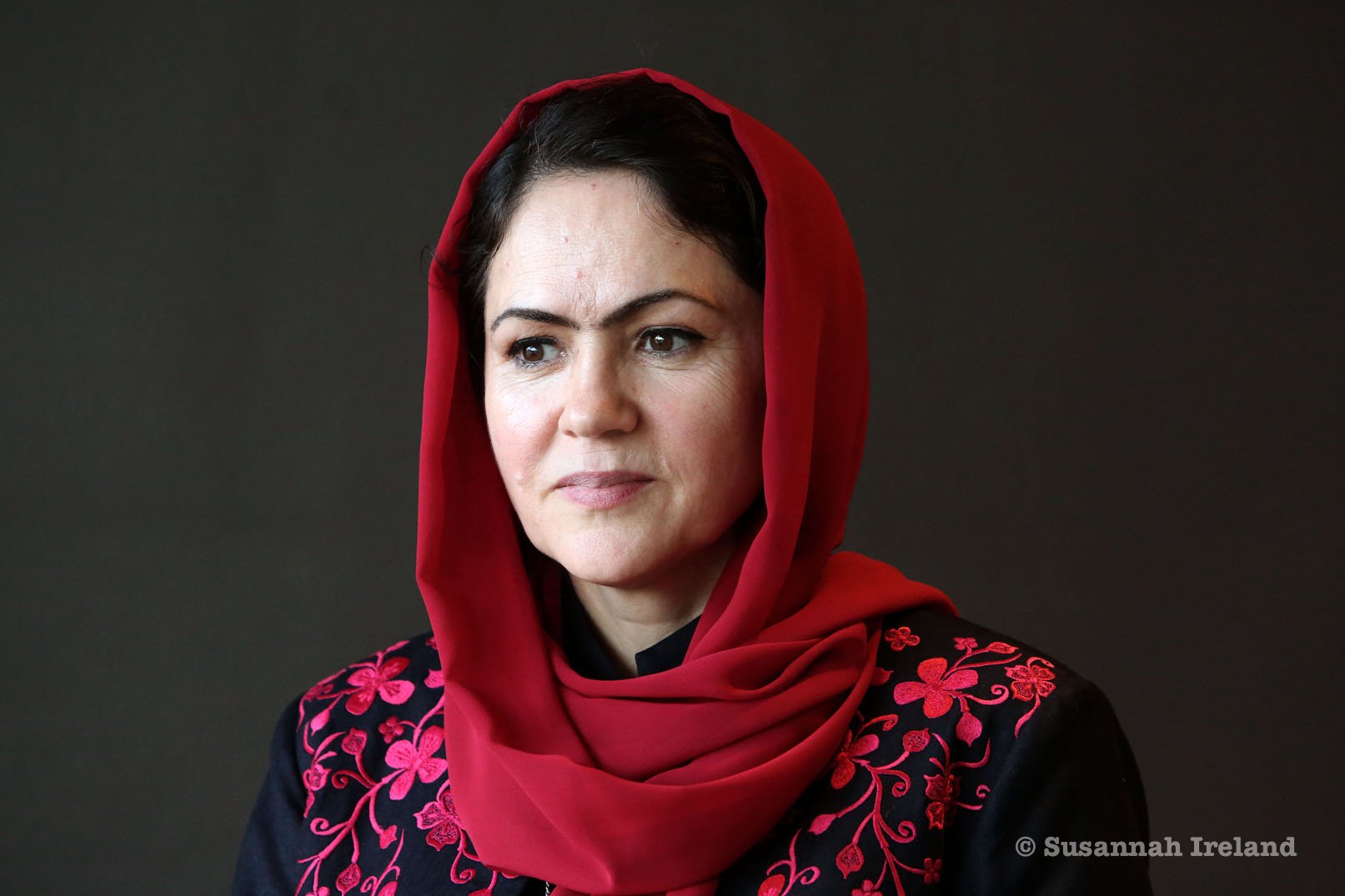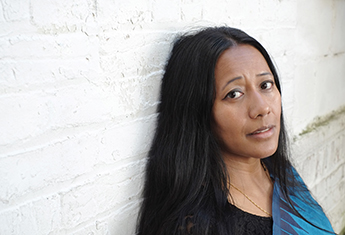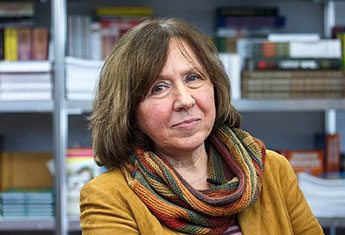How to Honor Anna Politkovskaya
By Mariana Katzarova
1996. Spring. The yard of the Sakharov Museum, Moscow. The slim woman across the yard is staring at me behind her big glasses. A few seconds later she is standing tall and intense in front of me. Barely controlling her anger she says: “You are the Amnesty woman, aren’t you? How could you even doubt who killed Nadia Chaikova? Don’t you understand there are no ‘two sides’ to appeal to for justice in her murder? We have it all on tape and in her own words…” Then she quickly walks away, not awaiting my answer.
This was my introduction to Anna Politkovskaya. It was the end of the First Chechen war. Anya was working at “Obshchaya Gazeta”, the brave weekly newspaper of Egor Yakovlev, which fiercely criticized the corruption of the Yeltsin circle and campaigned for an end to the first Chechen war. It was forced to close down in 2002, for lack of funding. It was Nadia Chaikova who was then covering the war in Chechnya for “Obshchaya”, and Anya’s Second Chechen war was still to come four years later. I had just become the Russia researcher for Amnesty International. Neither of us knew it then, but this was the beginning of many years of loving friendship and work together in Chechnya. I met and interviewed many of the same people that Anna did. We often worked together, investigating many of the same cases, often exchanging information. She was often herself my case to investigate – when she was detained on the Russian military base in Khankala and they put her through a mock execution, when one of the torturers she exposed, Lapin, threatened to kill her, when she was poisoned to prevent her from reaching the school in Beslan…
The good old plan
But that was to come later… In 1996, Anya’s colleague at “Obshchaya Gazeta”, Nadezhda Chaikova, who was covering the war, had just been killed while on assignment in Chechnya – with a bullet in her head. The same way Anya would be killed a decade later. To date no one responsible for Chaikova’s murder has been found. As – no doubt – will happen with Anya’s. The mutilated body of Nadezhda Chaikova, bearing signs of torture, with her hands tied behind her back, was found by the elders of the village of Gekhi in April 1996. At the time, some suggested that Chechen leaders themselves might have ordered her death, acting on rumors spread by Russian secret agents that she was a spy for the Russian FSB. A year earlier, in April 1995, it is believed that the American, Fred Cuny, visiting Chechnya on a humanitarian mission for the Soros Foundation, was killed (together with his team of two Russian Red Cross doctors and an interpreter) by Chechen fighters, who were “tipped” by the Russian FSB that he was a spy for them.
A letter by Chaikova, in which she had written, “In case I am killed or wounded, you should blame the Russian army or the Russian security services. Please do not put the blame for this on the so-called “Dudaev’s fighters”, was later given to her colleagues in the “Obshchaya Gazeta”, who mounted their own investigation into her murder. They discovered that in the last weeks of her life she feared being ‘eliminated’, after she refused to become an informant for the Russian security services, the FSB. She did leave a tape, which was later smuggled out of Chechnya and given to her colleagues, where on camera, she revealed how the FSB had been trying to turn her into a spy among the Chechen resistance – what better cover than being a well-known Moscow journalist? – and how again and again she had refused to comply. This is when the threats on her life began… A few days later, she was dead.
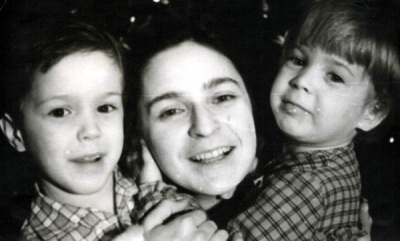
On this spring day of 1996, Anya was angry with me and with our Western political correctness, always trying to keep a balance between concepts and sides in pursuit of some pure objectivity and independence. I had just written a statement on behalf of Amnesty International, calling on “both sides to the conflict in Chechnya to investigate without delay the murder of Chaikova and whoever is responsible to be brought to justice” – a standard phrase, no more or less, which all of us in the international human rights movement have been using time and time again in conflict around the world, even in the face of genocide… It seems we have mastered the art of “cool objectivity”, while in response the governments around the world have mastered the art of the “cool response”. In Russia, the rare replies we received from the authorities always read: “The criminal investigation has been closed for lack of evidence and substance of a crime”.
Izgoy
Of course, those who killed Anya knew that impunity is guaranteed: the killer may be found; the one who ordered it – never. As it was with so many other journalists and human rights defenders in Russia before Anya – Galina Starovoitova, Dmitry Kholodov, Nadezhda Chaikova, Nina Efimova, Paul Khlebnikov… And I believe that there is nothing more or less that Anna would have wanted from us today than to honor what she stood for when she was alive: to keep Chechnya in the news and to protect the few journalists and human rights defenders in Russia who still dare speak out the truth about the war in Chechnya.
I expected Anya’s murder to become a wake-up call for all Russians, a reminder that the limitation of their rights and freedoms by their government has gone too far for them to tolerate anymore. Anya, who risked speaking the truth for all of them, has finally been silenced. I thought that millions would take to the streets on the day of her funeral, as they did years ago at the funeral of Andrei Sakharov. To my astonishment, barely 3,000 people gathered at the Troyekurovsky cemetery, in the outskirts of Moscow. And I realized then that Anya was as alone in Russia as she had probably been when blindfolded in front of the military men during the mock execution on the army base in Khankala. Profoundly alone.
She was a pariah, as she called herself in one of her last stories. She was ‘neudobnaya’ – the unfitting, the uncomfortable one, an ‘izgoy’ – the outsider. And all of this because of her describing and reporting the truth about the ‘dirty war’ in Chechnya. She was a condemned woman – giving voice to condemned people: the people of Chechnya. She had something of the great Russian poet, Anna Akhmatova. Once, during the Stalin Terror, when Akhmatova was waiting in front of a prison in Leningrad where her son was a prisoner, a woman asked her: “Can you describe this?” And Akhmatova answered: “Yes, I can” This is how Anya felt about her life. She wrote:
“The main thing, however, is to get on with my job, to describe the life I see, to receive visitors every day in our editorial office who have nowhere else to bring their troubles, because the Kremlin finds their stories off-message.”
Was she afraid? Of course, she was. But she couldn’t stop, for there was no one to take her place. And there still isn’t. Chechnya is back in the news around the world these days. It took the killing of Anna to break the silence over Chechnya. But how long will that last?
The every-day life
During the past eight months since Anya’s murder, I have been asked a couple of times to write about her and our friendship. Each time I have asked myself what would Anya have wanted me to write about? Each time I chose to write about Chechnya and what Anya cared about – the victims of torture, disappearances and murder. And each time my pieces have been politely turned down. One editor had the courage to say to me: “We will be closed down if we publish anything this strong on Chechnya… I hope you can understand – there is a Russian embassy in our country too… We just wanted something personal about Anna Politkovskaya and your friendship with her. But not about Chechnya, please…” Another editor said: “I love your story, but it is too journalistic…Do we need all these descriptions of rape and torture? We wanted something more literary, more soulful about what kind of person Anna was in her daily life…”
It is fashionable to write about Anna Politkovskaya these days. Somebody regretted in the Russian press that there is as yet no monument to Anna. There is even an idea to open an “Anna Politkovskaya” museum in Moscow. I wonder what would be exhibited in this museum? The Makarov that killed her? Or the computer that she wrote her stories on? And would her monument be of white marble or black granite?
A couple of weeks after Anya’s killing, a British journalist asked me to meet and to talk about Anna. He said, Hollywood wants to make a film about her life and many millions have already been promised by a wealthy producer in the US. He was writing the screenplay already, having never visited Russia or Chechnya, and not even speaking the Russian language. All he wanted to know was something juicy about her life – “her personal drama and conflict”, as he put it – which no doubt made her do what she did. Something about a painful divorce or a childhood trauma or a broken heart… But not a word about Chechnya or the victims of rape and torture, or the Chechen mothers of the disappeared or the Russian mothers of soldiers, tortured by their superiors, while serving in Chechnya…. Not a question about the people for whom Anya cared or about their grief and despair while they knocked on the locked doors of the citadel called Russian justice.
Hero of Russia
Less than a week after Anna’s killing, the Society for Russian-Chechen Friendship, an NGO in Nizhny Novgorod, was ordered to close down by a court decision. During the same week, the Russian government was ordered by another court – the European – to pay $290,000 to the survivors of the massacre of five Chechen civilians by Russian soldiers in 2000 – one of them a pregnant woman; another – a one-year old boy… The last unfinished article that Anya worked on described the story of a man, who under torture with electric shocks and threats of being raped by soldiers, confessed to three murders he hadn’t committed…
Not much has changed in Russia and Chechnya since Anya’s killing last October: independent journalists continue to die in mysterious circumstances; civil society is stifled by draconian government laws and regulations. In Chechnya, torture, rape, disappearances and killings of civilians are a daily occurrence, at the hands of both the Russian forces and the militiamen of the pro-Moscow Chechen president, Ramzan Kadyrov. Colonel Yuri Budanov, the first Russian officer who was prosecuted for crimes against civilians in Chechnya – specifically for the rape and murder of eighteen-year old Kheda Kungaeva – mysteriously disappeared from the prison colony where he served his ten- year sentence.
Colonel Vladimir Bukreev – the very military judge who took the decision to sentence Budanov during the re-trial of his case in 2003 and courageously dismissed the verdict of the first court that Budanov was temporarily insane when raping and killing the Chechen girl – is now in prison. Colonel Bukreev, who had been awarded eight medals by the Russian army for his impeccable military career as a judge, and was the deputy chairman of the North Caucasus district Military Court in Rostov-on-Don, was arrested in November 2006 and charged with taking bribes. He had previously been threatened that if he sentenced Colonel Budanov, then he himself — Bukreev– would be next to go to prison. There is no doubt that Judge Bukreev’s criminal case was fabricated to punish him for sentencing that all-Russian hero and a cavalier of the “Hero of Russia” medal for bravery, Colonel Budanov. Anya wrote about Bukreev at the time of Budanov’s trial: “But then a miracle occurred, both a miracle and a courageous act by Judge Vladimir Bukreev. The judge dared to find Budanov guilty and furthermore to sentence him to far from a token period of detention. Bukreev thereby set himself against the entire Russian military establishment, which has been actively rooting for Budanov. … For Judge Bukreev to find Budanov guilty was a brave act, because he was simultaneously passing a sentence on himself.”
The Ulman case
Similarly to Budanov, three of the four criminal suspects in another case Anya wrote about – the Ulman case – also recently mysteriously disappeared, at the very moment when their case was supposed to go for yet another re-trial in April 2007, following an appeal. On 19 May 2005, a jury in Rostov-on-Don acquitted (for a second time) Captain Eduard Ulman and his three co-defendants – Major Aleksei Perelevsky, Lieutenant Aleksander Kalagansky and Warrant Officer Vladimir Voyevodin – despite the fact that they had admitted killing six civilians in January 2002. On 14 June 2007, the four Russian officers in the Ulman case were found guilty by a judge (not a jury) and sentenced to prison terms between 9 and 14 years.
Although, this is a very positive development in itself, 3 out of the 4 defendants have disappeared just before the beginning of the trial and it is widely believed they would never be found in order to serve their sentence.
The six civilians were travelling on a bus from the near-by mountain village of Dai to the local administrative center. The soldiers were lying in wait to ambush Chechen fighters and opened fire on the bus after the driver apparently refused to stop, immediately killing one of the passengers and wounding two. The defendants testified that after discovering that the passengers were unarmed local residents, Ulman radioed his commanders for instructions on what to do and was ordered to finish off the survivors, including a pregnant woman, an elderly school director and a teenager. They carried out the order and then placed the bodies of all six victims in the bus and burned it.
Anya wrote in “Novaya Gazeta” after the second acquittal of Ulman’s men in 2005: “Two collegiums of Rostov people demonstrated what everyone knew anyway: [that] in Rostov, they don’t consider Chechens as people equal to themselves. As to the underlying reason for this decision, that’s it. The Ulman case is simply documentary proof of the existence of a potent regional fascism…A demonstration of the stratification of society into ‘higher’ and ‘lower’ races. There was lots of talk that the jurors were bought off. But that’s untrue. It needs to be recognized that these are the jurors’ convictions. On two occasions, different [groups of jurors] confirmed an elastic approach to rights on the basis of national characteristics. There is one set of human rights for Rostov-ites and another for Chechens…Did we really not know this before the Ulman verdict? Of course, we knew. But we hoped it had not gone so deep. We reassured ourselves with the fact that [Yuri] Budanov received a guilty verdict and is in prison. But the tragedy is that during these years, from the Budanov case to the Ulman case, everyday fascism only took further root.”
How much more time to go?
In the meantime, Western governments pursuing the benefits of a long-lasting friendship with Russia – a supportive voice for the “war on terror”, coupled with cheap and accessible Russian oil and gas – continue to be mute and rarely voice discomfort about the war crimes in Chechnya or the silencing of civil society in Russia.
Anya was a courageous Russian journalist, who was not afraid to speak out about the torture and rape in Chechnya. She paid for it with her life. Because there is nothing more dangerous than telling the truth in today’s Russia. And Anya was a truth-seeker with every fiber of her being. She just couldn’t remain silent; she couldn’t play it safe. She was a fierce spirit, a whistle-blower, a caring and loyal friend, a deeply loving woman, who stood up for humanity… Anya was my dear friend; she gave me courage and always will.
I have on my wall at home a picture taken three years ago of Anna and me in Nazran, at the border of Chechnya, with three amazing Chechen women activists from Memorial, the biggest Russian human rights organization. Anya has just come out of Chechnya, having interviewed the pro-Moscow Chechen Prime-Minister, Ramzan Kadyrov, who later threatened to kill her when the interview was published. I look at it and what I see is: one has been murdered, two live outside Russia because of threats to their lives, and only one is still in Chechnya, but for how long…?
We don’t need monuments and we don’t need museums for Anya. I know that all we have to do is to help Anya’s people – the victims, whom nobody wants to listen to, and the whistle-blowers, who can be silenced any day. We owe it to the memory of Anya to protect the very few who still speak out in Russia. No more – no less.
by Mariana Katzarova
(The author is the founder of RAW in WAR. At the time of publication of this article Mariana Katzarova was the researcher on Russia and Chechnya at Amnesty International for 10 years. Originally from Bulgaria, she was a founder of the first independent newspaper in Bulgaria in 1989, called “Democracy”. After working for 15 years as a journalist and human rights advocate in the war zones of Bosnia, Kosovo and Chechnya, Mariana founded RAW in WAR in 2006 – an international human rights NGO supporting women human rights defenders and women and girl victims of war and conflict around the world. With this goal in mind, RAW in WAR is launching an annual award in the name of Anna Politkovskaya, to be given to a woman human rights defender from a conflict zone in the world who stands up for the victims of this conflict, often at a great personal risk. The first Award is presented to Natalia Estemirova, a close friend and colleague of Anna, as well as a human rights defender and freelance journalist, working in Chechnya. This piece is coming out also in “Hommage à Anna Politkovskaïa” published by Buchet/Chastel in Paris)
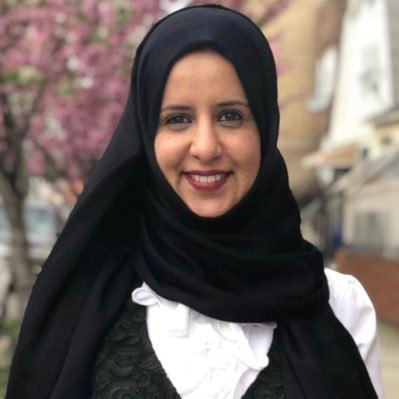
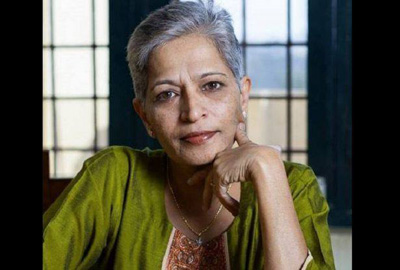
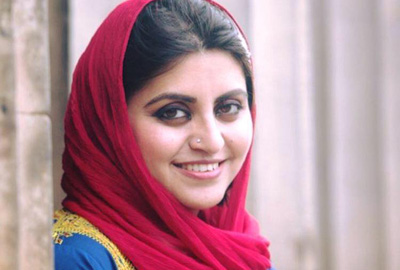
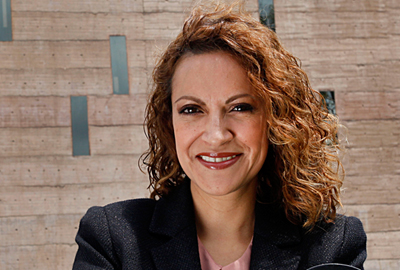
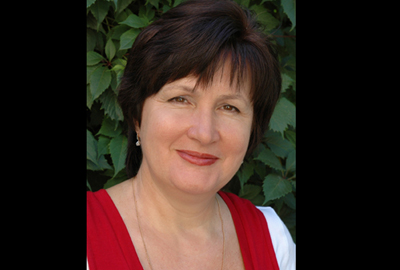
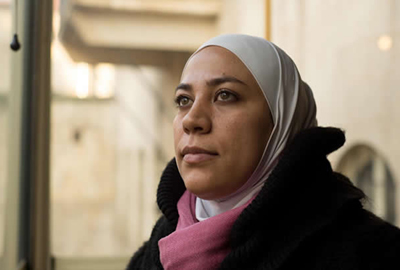
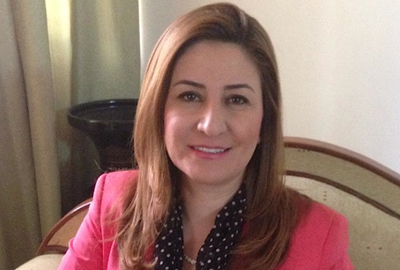


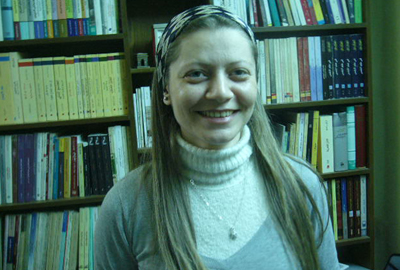
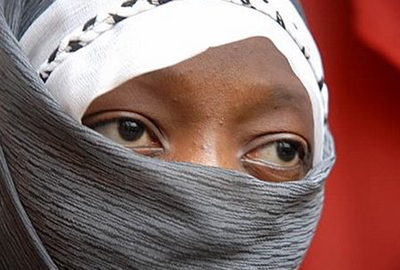

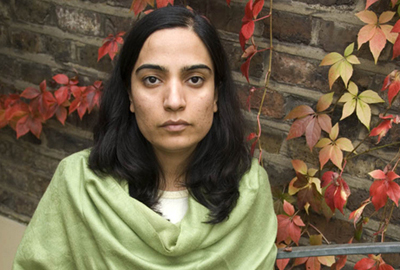

 On this spring day of 1996, Anya was angry with me and with our Western political correctness, always trying to keep a balance between concepts and sides in pursuit of some pure objectivity and independence. I had just written a statement on behalf of Amnesty International, calling on “both sides to the conflict in Chechnya to investigate without delay the murder of Chaikova and whoever is responsible to be brought to justice” – a standard phrase, no more or less, which all of us in the international human rights movement have been using time and time again in conflict around the world, even in the face of genocide… It seems we have mastered the art of “cool objectivity”, while in response the governments around the world have mastered the art of the “cool response”. In Russia, the rare replies we received from the authorities always read: “The criminal investigation has been closed for lack of evidence and substance of a crime”.
On this spring day of 1996, Anya was angry with me and with our Western political correctness, always trying to keep a balance between concepts and sides in pursuit of some pure objectivity and independence. I had just written a statement on behalf of Amnesty International, calling on “both sides to the conflict in Chechnya to investigate without delay the murder of Chaikova and whoever is responsible to be brought to justice” – a standard phrase, no more or less, which all of us in the international human rights movement have been using time and time again in conflict around the world, even in the face of genocide… It seems we have mastered the art of “cool objectivity”, while in response the governments around the world have mastered the art of the “cool response”. In Russia, the rare replies we received from the authorities always read: “The criminal investigation has been closed for lack of evidence and substance of a crime”.

